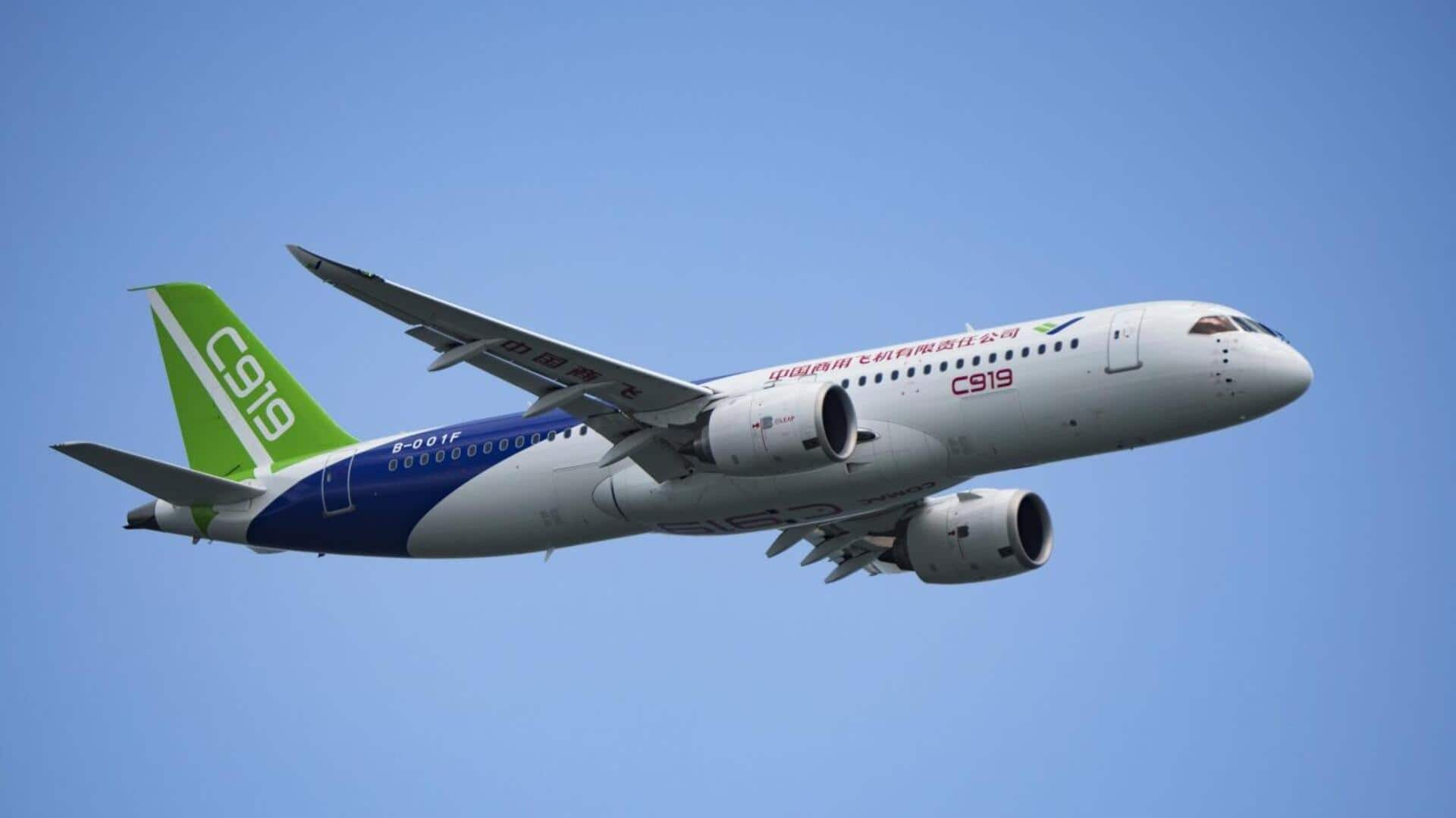
Why China's plan to take on Boeing has hit roadblock
What's the story
China's ambitious plan to take on Boeing and Airbus with its own passenger jet, the C919, is facing major hurdles. The aircraft, a single-aisle passenger plane designed to compete with Boeing's 737 and Airbus's A320, is manufactured by state-owned Commercial Aircraft Corporation of China (COMAC). Despite its maiden commercial flight in 2023, delivery targets for this year are expected to fall short due to ongoing trade tensions with the United States.
Challenges
Supply chain issues threaten C919 program
The C919 program, which has been heavily subsidized by the Chinese government, is facing major supply chain issues. These problems stem from trade tensions with Washington that could prevent COMAC from obtaining key components. "COMAC faces significant risk from the volatile policy environment, with its supply chains vulnerable to export restrictions and tit-for-tat measures between the US and China," said Max J. Zenglein, Asia-Pacific senior economist at The Conference Board think tank.
Geopolitical hurdles
Complex supply chain makes it vulnerable to geopolitical tensions
The C919 has a complicated supply chain with 48 major US suppliers, including GE, Honeywell, and Collins. There are also 26 European suppliers and 14 from China. This complexity makes the program vulnerable to geopolitical tensions. "Existing choke points are being exploited in the deal-making process between governments," Zenglein said. "This is likely to continue as critical dependencies have become political bargaining chips."
Production issues
Trade tensions directly affect delivery schedules
Despite plans to ramp up production and deliver 30 jets in 2025, COMAC has struggled with deliveries. The company delivered just seven C919s as of October this year. Trade tensions between the US and China have directly affected these schedules, Dan Taylor, head of consulting at aviation consultancy IBA said. For instance, output plans were disrupted when the US suspended export licenses for the jet's LEAP-1C engines around May before resuming them in July.
Supplier dependence
Political shifts could impact program
The C919's engines, jointly built by GE Aerospace and France's Safran, require US export clearance. This makes the program sensitive to political shifts. Engine and avionics dependence on Western suppliers continues to expose the program to policy decisions beyond COMAC's control. China needs almost 9,570 new passenger aircraft between 2025 and 2044 according to Airbus's latest market forecast, over 80% of which will be single-aisle jets like the C919.